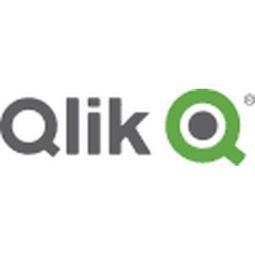公司规模
Large Corporate
地区
- Pacific
国家
- Australia
产品
- QlikView
- Qlik Sense
- SIMON (Statewide Information Management Operation Node)
- Front Door
技术栈
- Data Analytics
- Business Intelligence
- Data Warehousing
- Real-Time Dashboards
实施规模
- Enterprise-wide Deployment
影响指标
- Productivity Improvements
- Customer Satisfaction
- Digital Expertise
技术
- 分析与建模 - 实时分析
- 应用基础设施与中间件 - 数据交换与集成
适用行业
- 医疗保健和医院
适用功能
- 质量保证
- 商业运营
用例
- 实时定位系统 (RTLS)
- 质量预测分析
- 远程资产管理
服务
- 数据科学服务
- 系统集成
关于客户
The Tasmania Department of Health is responsible for safeguarding and improving the health and wellbeing of the state's residents. They provide a broad range of health services, including managing hospitals around the state and partnering with other essential public services to improve, promote, protect and maintain the health, safety and wellbeing of Tasmanians. They do this through service planning, managing, procuring and delivering high-quality health services. In 2010, the Department of Health began making forays into data analytics, with three of the four health regions delivering data through one person working with a massive Excel workbook. They recognized the need to start thinking in terms of data warehouses and improved analysis.
挑战
Tasmania Health was facing a challenge where their entire data structure was reliant on a single person, creating a single point of failure. This was problematic as it created a risk of data loss or mismanagement if that person was unavailable. The organization was also separated into silos, with each structure having its own 'data guru'. This led to a disjointed system where insights into processes and outcomes were not possible. The organization realized the need for a more centralized data process and remove data confusion. However, the transition to a centralized system was met with resistance due to fears of losing the go-to person for data in each region.
解决方案
Tasmania Health implemented a two-pronged solution to address their data management challenges. Firstly, they created a data request system called 'Front Door'. This web application treated staff as customers and facilitated the flow of data requests from the initial contact through to the end data output. This ensured that each request was treated seriously and received an appropriate and timely response. Secondly, they built a data analysis portal called SIMON (Statewide Information Management Operation Node) on top of Qlik Sense. This system of dashboards was designed to meet the needs of each unit, providing critical information at a glance. The transition to this new model was facilitated by Qlik, who provided trial licenses and worked closely with the Tasmania Health team.
运营影响

Case Study missing?
Start adding your own!
Register with your work email and create a new case study profile for your business.
相关案例.

Case Study
Hospital Inventory Management
The hospital supply chain team is responsible for ensuring that the right medical supplies are readily available to clinicians when and where needed, and to do so in the most efficient manner possible. However, many of the systems and processes in use at the cancer center for supply chain management were not best suited to support these goals. Barcoding technology, a commonly used method for inventory management of medical supplies, is labor intensive, time consuming, does not provide real-time visibility into inventory levels and can be prone to error. Consequently, the lack of accurate and real-time visibility into inventory levels across multiple supply rooms in multiple hospital facilities creates additional inefficiency in the system causing over-ordering, hoarding, and wasted supplies. Other sources of waste and cost were also identified as candidates for improvement. Existing systems and processes did not provide adequate security for high-cost inventory within the hospital, which was another driver of cost. A lack of visibility into expiration dates for supplies resulted in supplies being wasted due to past expiry dates. Storage of supplies was also a key consideration given the location of the cancer center’s facilities in a dense urban setting, where space is always at a premium. In order to address the challenges outlined above, the hospital sought a solution that would provide real-time inventory information with high levels of accuracy, reduce the level of manual effort required and enable data driven decision making to ensure that the right supplies were readily available to clinicians in the right location at the right time.

Case Study
Gas Pipeline Monitoring System for Hospitals
This system integrator focuses on providing centralized gas pipeline monitoring systems for hospitals. The service they provide makes it possible for hospitals to reduce both maintenance and labor costs. Since hospitals may not have an existing network suitable for this type of system, GPRS communication provides an easy and ready-to-use solution for remote, distributed monitoring systems System Requirements - GPRS communication - Seamless connection with SCADA software - Simple, front-end control capability - Expandable I/O channels - Combine AI, DI, and DO channels

Case Study
Driving Digital Transformations for Vitro Diagnostic Medical Devices
Diagnostic devices play a vital role in helping to improve healthcare delivery. In fact, an estimated 60 percent of the world’s medical decisions are made with support from in vitrodiagnostics (IVD) solutions, such as those provided by Roche Diagnostics, an industry leader. As the demand for medical diagnostic services grows rapidly in hospitals and clinics across China, so does the market for IVD solutions. In addition, the typically high cost of these diagnostic devices means that comprehensive post-sales services are needed. Wanteed to improve three portions of thr IVD:1. Remotely monitor and manage IVD devices as fixed assets.2. Optimizing device availability with predictive maintenance.3. Recommending the best IVD solution for a customer’s needs.

Case Study
HaemoCloud Global Blood Management System
1) Deliver a connected digital product system to protect and increase the differentiated value of Haemonetics blood and plasma solutions. 2) Improve patient outcomes by increasing the efficiency of blood supply flows. 3) Navigate and satisfy a complex web of global regulatory compliance requirements. 4) Reduce costly and labor-intensive maintenance procedures.

Case Study
Harnessing real-time data to give a holistic picture of patient health
Every day, vast quantities of data are collected about patients as they pass through health service organizations—from operational data such as treatment history and medications to physiological data captured by medical devices. The insights hidden within this treasure trove of data can be used to support more personalized treatments, more accurate diagnosis and more advanced preparative care. But since the information is generated faster than most organizations can consume it, unlocking the power of this big data can be a struggle. This type of predictive approach not only improves patient care—it also helps to reduce costs, because in the healthcare industry, prevention is almost always more cost-effective than treatment. However, collecting, analyzing and presenting these data-streams in a way that clinicians can easily understand can pose a significant technical challenge.




